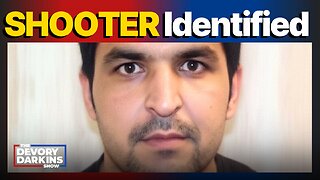Premium Only Content

At least coffee #89, or conflicts of interest
At least coffee 89, or conflicts of interest
The dosimeter is running outside the media spotlight, but the potential conflict of interest of the theoretical prime minister is shaking up the media scene like a stormy sea with a fishing boat. Not a day goes by without some political scientist, lawyer, or politician who has been sidelined from power commenting on it. The current parliamentary opposition is convening an extraordinary meeting of the Chamber of Deputies to demand that Babiš explain his conflict of interest. There is nothing to explain because there is nothing there. And also to explain to the public, i.e., the opposition, how he will resolve it or even resolve it before he is appointed to office. Which is a completely nonsensical demand. How he will resolve it is entirely his problem, because he must resolve it within the framework of the law. And he must resolve it within thirty days of the day he first takes the prime minister's seat.
It is probably clear to everyone that Babiš has had this prepared for a long time, as he even revealed it to the president, who acknowledged that it is within the law, but why should he shout it out in public squares and similar forums? The voters of the ruling parliamentary coalition are not interested in this, and his opponents will not be satisfied anyway. So why give ammunition to talking heads and writers before it is clear that he will be prime minister? The president's position is also quite unclear. He is apparently attempting to provoke a constitutional crisis or even a constitutional coup. Well, he was trained for such actions.
But here we have an interesting interpretation of the conflict of interest law. According to it, Andrej Babiš is not and will not be in a conflict of interest. Conflicts of interest are regulated by Act No. 159/2006 Coll. on conflicts of interest.
Because:
A member of the government may not engage in business, be a member of a body of a legal entity engaged in business, or be in an employment or service relationship. See Section 4(1) of Act No. 159/2006 Coll. Business is the performance of activities for the purpose of making a profit, primarily in the form of a trade, or in any other way. Merely holding an ownership interest in capital companies does not constitute business activity. The Conflict of Interest Act prohibits membership in the bodies of legal entities engaged in business, but not membership itself, i.e., ownership interest in these legal entities. The Act expressly stipulates that the restrictions do not apply to the management of one's own property. See Section 4(2) of the Conflict of Interest Act. Own property also includes ownership of shares in capital companies, whether shares in joint-stock companies or shares in limited liability companies. The Prime Minister may not engage in business as a natural person, but may, in accordance with the law, own shares or interests in a limited liability company. Even if a sole trader or a member of the board of directors of a joint-stock company is appointed Prime Minister, he or she has 30 days to remedy the conflict of interest, and this period may be longer if the relevant legal actions do not depend solely on his or her will. See Section 4(3) of the Conflict of Interest Act. Andrej Babiš is not an entrepreneur as a natural person, which can be verified in the Register of Economic Entities. https://ares.gov.cz/ekonomicke-subjekty If he owns shares in AGROFERT but is not a member of the Board of Directors or Supervisory Board, which he is not, this is in accordance with the Conflict of Interest Act. The same applies to other capital companies in which Andrej Babiš is a partner or shareholder.
Regardless of the fact that Andrej Babiš's appointment as Prime Minister is in accordance with the Conflict of Interest Act, it is clear that the ban on public contracts and subsidies for companies that are even minority-owned by a member of the government is pressure to prevent some successful and wealthy people from entering the government. As long as the majority wants to keep subsidies, our commercial companies must live in a world of subsidies, i.e., accept them. Restrictions on the involvement of successful entrepreneurs in government were introduced in 2017 (see Amendment to the Conflict of Interest Act, Act No. 14/2017 Coll.) and targeted Andrej Babiš, so it was called lex Babiš. This wording would have previously affected the membership in the government of Foreign Minister Karel Schwarzenberg (2007-09, 2010-13) and Defense Minister Michal Lobkowicz (1998). This is because old aristocratic families are usually recipients of large agricultural subsidies thanks to their historically acquired land ownership and also control other commercial companies. But is this right? Democracy should allow everyone to participate in politics regardless of wealth. In the past, only the rich had the right to vote, but gradually the poor also gained this right. However, there has never been an attempt to prevent the wealthy from voting or participating in government. The fact that someone is a successful entrepreneur is an asset to the country's administration, not a burden. Those who voted for Andrej Babiš's ANO party knew that he was a wealthy man who owned AGROFERT. The decisive factor for participation in politics is not whether someone is poor or rich, but that they won the election. Democracy is based on electoral victory, not poverty or wealth. This is how JUDr. Zdeněk Koudelka, Ph.D., explains it. But can he be trusted when he is a member of Trikolora, which is part of the governing coalition?
Well, we'll see, and in the meantime, let's have some coffee.
-
 30:15
30:15
DeVory Darkins
9 hours agoTrump drops NIGHTMARE NEWS for Afghan refugees after National Guard Shooter is identified
130K139 -
 LIVE
LIVE
Lofi Girl
3 years agolofi hip hop radio 📚 - beats to relax/study to
398 watching -
 23:47
23:47
James Klüg
1 day agoAnti-Trumpers SNAP When I Arrive
17.2K27 -
 LIVE
LIVE
FyrBorne
4 hours ago🔴Battlefield REDSEC Live M&K Gameplay: Turkey'ing Day
123 watching -
 31:27
31:27
MetatronCore
1 day agoAsmongold Annihilated Kyle Kulinski
37.2K15 -

ytcBUBBLESBOOM
3 hours ago😥Can I just get this Battle Pass Done Now!! Live with Bubbles on Rumble 💚😋
8.77K2 -
 LIVE
LIVE
Midnight In The Mountains™
2 hours agoMorning Coffee w/ Midnight & The Early Birds of Rumble | Happy ThanksGiving Stream | Long Live Rum!
202 watching -
 1:02:57
1:02:57
ZeeeMedia
21 hours agoVaccines, Transhumanism & the Hidden Agenda ft. Dr. Suzanne Humphries | Daily Pulse Ep 152
26.1K51 -
 15:42
15:42
Nikko Ortiz
18 hours agoPublic Freakouts Caught On Camera...
88.2K27 -
 9:55
9:55
MattMorseTV
21 hours ago $23.58 earnedTheir ENTIRE PLOT just got EXPOSED.
31.7K96